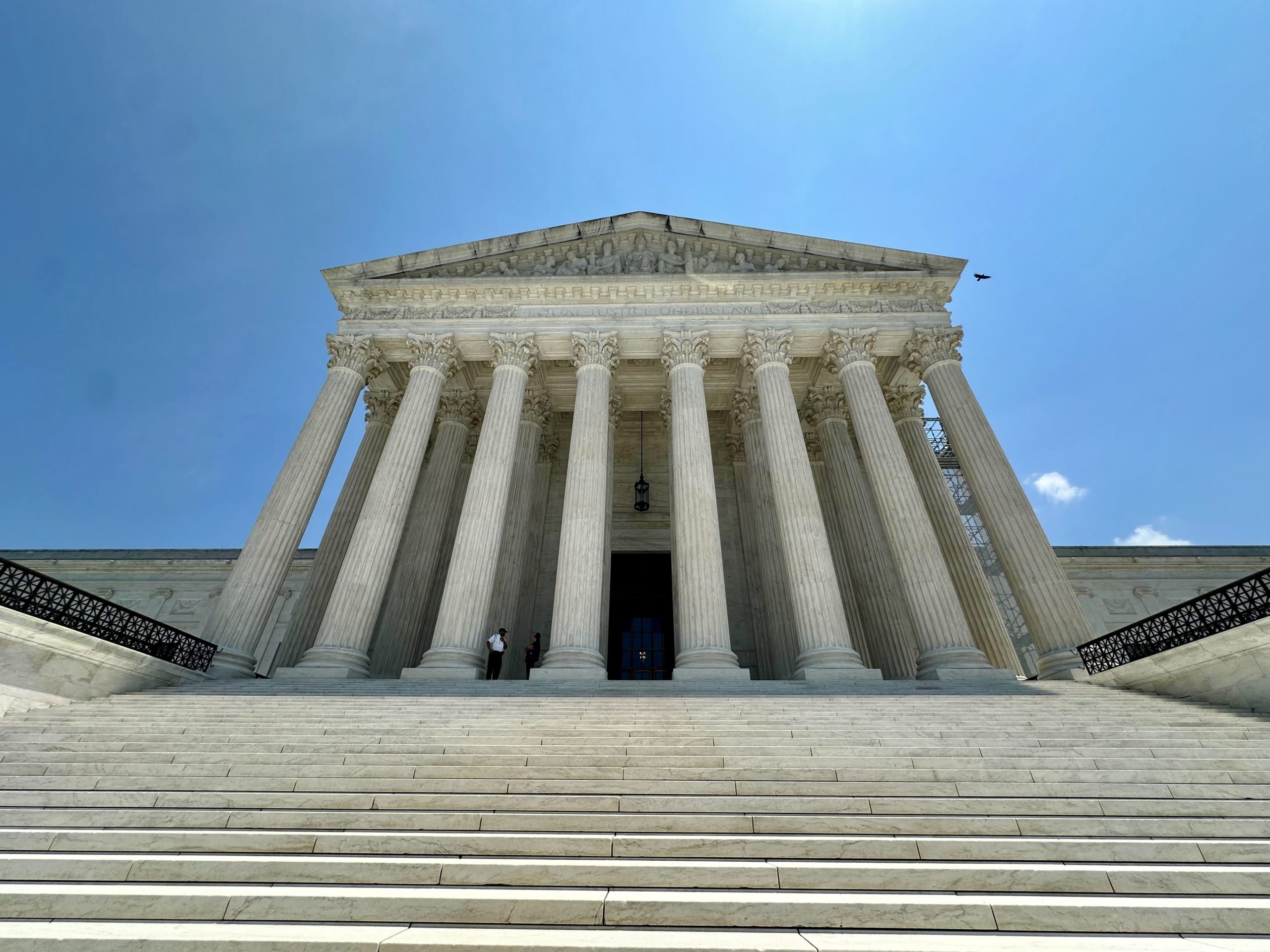ARGUMENT ANALYSIS
on Jan 13, 2025
at 4:35 pm

The court docket heard Stanley v. Metropolis of Sanford, Fla. on Monday. (Katie Barlow)
The Supreme Courtroom on Monday appeared sympathetic to a retired Florida firefighter who’s in search of to sue her former employer beneath the People with Disabilities Act. Karyn Stanley, who labored for the fireplace division in Sanford, Fla., for twenty years earlier than Parkinson’s illness compelled her to retire on the age of 47, contends that the town violated the legislation when it modified its coverage for subsidizing medical insurance for retirees, leaving her to bear all the price of her medical insurance for 15 years. However some justices questioned whether or not Stanley’s finest argument was one which they may contemplate in any respect, whereas no less than two justices – Neil Gorsuch and Amy Coney Barrett – remained silent, making it tough to foretell how they are going to vote.
A federal appeals court docket in Atlanta dominated that Stanley couldn’t carry her declare beneath the People with Disabilities Act as a result of she didn’t work for the town when her retirement advantages have been terminated.
Stanley’s lawyer, Deepak Gupta, on Monday urged the justices to reverse that ruling. He informed the justices that Stanley had “no less than two paths” to victory. The “slender path,” he argued, is to rule that Stanley can sue as a result of she is alleging that she was the sufferer of discrimination whereas she was nonetheless employed by the town: She started working for the fireplace division in 1999, the town modified its coverage on the subsidies in 2003, she was recognized with Parkinson’s illness in 2016, and he or she was compelled to retire in 2018. From 2016 to 2018, Gupta defined, Stanley “was topic to a coverage that she alleges decreased her compensation in a discriminatory method.”
Frederick Liu, an assistant to the U.S. solicitor basic who argued as a “good friend of the court docket” on behalf of the Biden administration, echoed this argument. He informed the justices that “probably the most easy path” for Stanley’s lawsuit to proceed “lies within the interval after she was recognized with Parkinson’s illness however earlier than she retired.”
Stanley’s second and “broader” path to victory, Gupta added, could be for the court docket to carry that “former staff could problem post-employment discrimination.” In any other case, he emphasised, “the ADA’s safety for these advantages” would “imply the least after they matter probably the most.”
Jessica Conner, who represented the town, urged the justices to give attention to the broader query and to depart the eleventh Circuit’s determination in place. The court docket of appeals was appropriate, she stated, when it held that Stanley’s declare couldn’t go ahead as a result of she couldn’t present that the town discriminated towards her “whereas she may carry out the important capabilities of a job that she held or desired to carry.”
Justice Clarence Thomas was the primary to boost the query whether or not the decrease courts had weighed in on Stanley’s narrower argument. Gupta defined that though the court docket of appeals had not determined that query, Stanley had made the argument there.
Justice Elena Kagan noticed that the justices had initially granted assessment to determine solely the broader query that Gupta mentioned. “I’m undecided we had” the narrower idea “in our minds once we took the case,” she informed Liu.
However Kagan later appeared extra open to contemplating the narrower idea. In an trade with Conner, she indicated that Stanley had certainly raised the argument within the decrease courts. And it “appears a bit odd,” Kagan prompt, to “determine the larger, broader query” when it’s purely an “educational” one for Stanley’s case, which may very well be resolved on the narrower floor.
Justice Samuel Alito had a unique concern. Underneath the town’s coverage, he noticed, Stanley is handled extra favorably than somebody who retires after 20 years with no incapacity (and due to this fact wouldn’t obtain any subsidy for medical insurance, whereas Stanley acquired it for 2 years), however much less favorably than somebody who retires after 25 years (and due to this fact would obtain a subsidy till she turned 65). How, he requested, are courts speculated to determine these questions beneath the ADA? “I wish to know,” he continued, “the place we’re going with this.”
Justice Ketanji Brown Jackson countered that Alito’s questions went to the deserves of a discrimination declare beneath the ADA. However she and Kagan frightened aloud that beneath the town’s rule, retirees would by no means be capable to sue whereas they have been nonetheless working to problem discrimination referring to “a retirement profit that’s going to kick in once I’m now not working.”
Gupta reiterated this level in his rebuttal, telling the justices that though the “metropolis concedes that the ADA protects retirement advantages,” it “gives no coherent account of how that safety may very well be vindicated,” and its “excessive place creates perverse incentives for employers to cover discrimination till after retirement.”
A choice within the case is anticipated by summer season.
This text was initially printed at Howe on the Courtroom.
